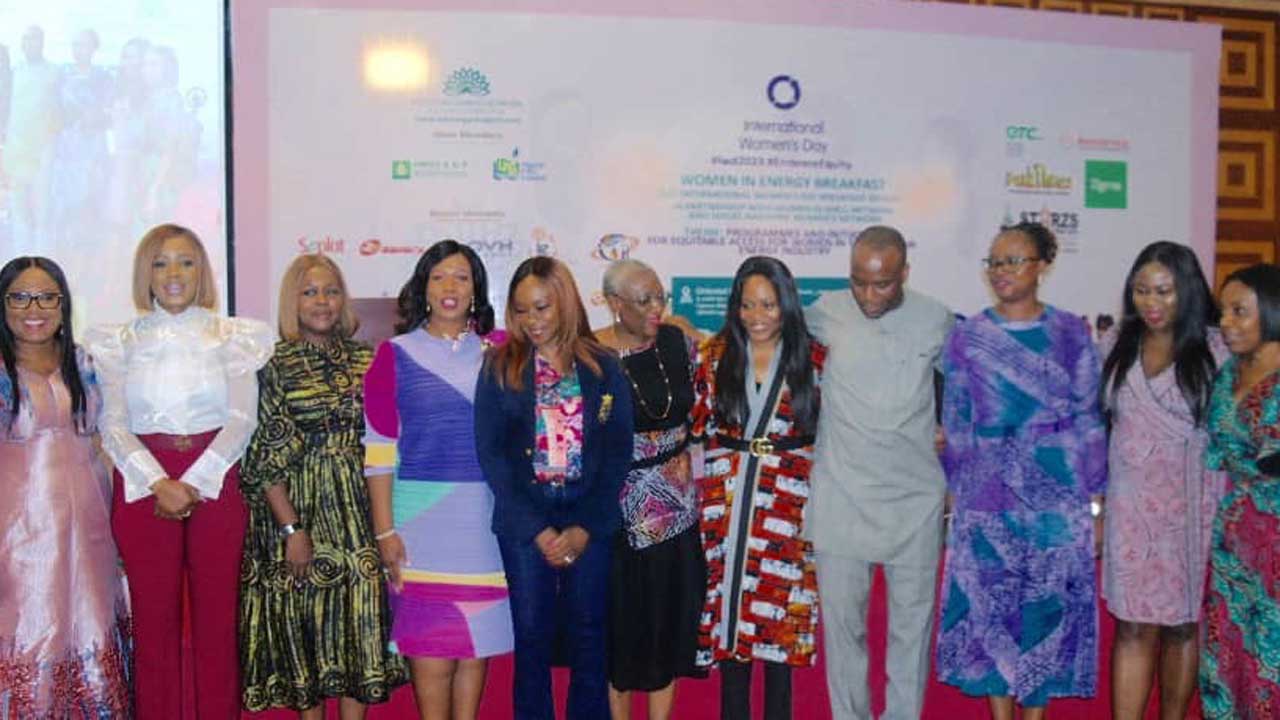
[ad]
The group noted that doing so would be a reliable way to fully harness human potentials in the sector towards accelerating national development.
WIEN noted that its call emanated from disturbing statistics that show that women remain significantly underrepresented in the energy sector despite their significant contributions in the industry.
According to a report by the National Bureau of Statistics, women make up only 11 per cent of the total workforce in the energy sector out of which only 4.0 per cent hold executive board positions.
The International Energy Agency also stated in its report that only 22 per cent of the global energy workforce were women, and they were underrepresented in technical and leadership roles.
WIEN, which comprises female investors, business owners, professionals and sundry workers in the sector, said that the government must build a society that provides congenial environment for people to excel in their endeavours irrespective of gender.
[ad]
Speaking at a breakfast meeting organised by the association in partnership with Women in Shell Network and Seplat Awesome Women’s Network focused on ‘Programmes and Initiatives for Equitable Access for Women in the Nigerian Energy Industry’, President of WIEN, Mrs. Funmi Ogbue, proposed a collaboration among policy drivers, regulators, industry leaders and organisations like WIEN to implement concrete solutions that dismantle all forms of bias and discrimination in the energy industry in particular and the country in general.
Ogbue pointed out that everyone should have access to the same opportunities, resources and rights regardless of their gender, race, ethnicity or other factors that can lead to inequality, stating that government must create a more equitable future by implementing policies that promote gender equity, such as increasing access to education, training programmes for women in the energy industry and ensuring equal pay for equal work.
She called on the government to work with stakeholders to create a more inclusive environment by promoting diversity in leadership positions and ensuring that women’s voices are heard and valued in decision-making processes.
“Governments and legislature must strengthen existing policies to attract more women in STEM, ensure appointment of women as heads of agencies in the various sectors both at sectional, regional and international levels as well as redraft obsolete legislations that hinder progress in the sector,” Ogbue stated.
She also called for regulations that mandate institutions to spread opportunities in the energy industry across the gender divide, saying:
“Regulatory agencies such as the Nigerian Content Development and Monitoring Board (NCDMB) can implement policies that promote gender equity and inclusion in the oil and gas industry. Armed with baseline data of gender inclusion, stakeholders can start to build a framework to achieving gender inclusion.”
Ogbue also emphasised that promoting gender equity in the energy industry was a matter of social justice and human rights, adding that it was essential to work together to create a future where everyone has an equal opportunity to succeed regardless of their gender or background.
She cited the Nigeria Energy Sector Report, which showed that women made up only 20 per cent of the energy sector workforce. She also said that a report by the African Development Bank (ADB) found that women in Nigeria’s energy sector faced discrimination in recruitment, promotion and pay, and were often excluded from decision-making processes.
[ad]
“This is a concerning trend, as research has shown that organisations with diverse leadership teams are more innovative, perform better financially and have better employee engagement and retention,” she noted.
WIEN blamed the situation on biases and systemic barriers that impede women’s progress and called on men in positions of influence to step up to the duty of promoting gender diversity.
“It is also crucial for men to become champions for women and advocate for their inclusion and advancement in the energy sector. Men in leadership positions must recognise the value of diversity and inclusion and take concrete steps to address biases and barriers.
“We also need to ensure that recruitment and hiring practices are inclusive and free from bias. This means implementing gender-neutral job descriptions, using diverse recruitment channels and establishing clear diversity targets for hiring managers. By making the hiring process more equitable and inclusive, we can help to ensure that talented women have access to the same career opportunities as their male counterparts.
“To achieve gender balance in the industry, it is critical that companies and organisations set measurable goals and regularly evaluate progress towards achieving gender equity,” she added.
[ad]
WIEN tasks incoming administration on prioritisation of gender equity policies
WIEN tasks incoming administration on prioritisation of gender equity policies



